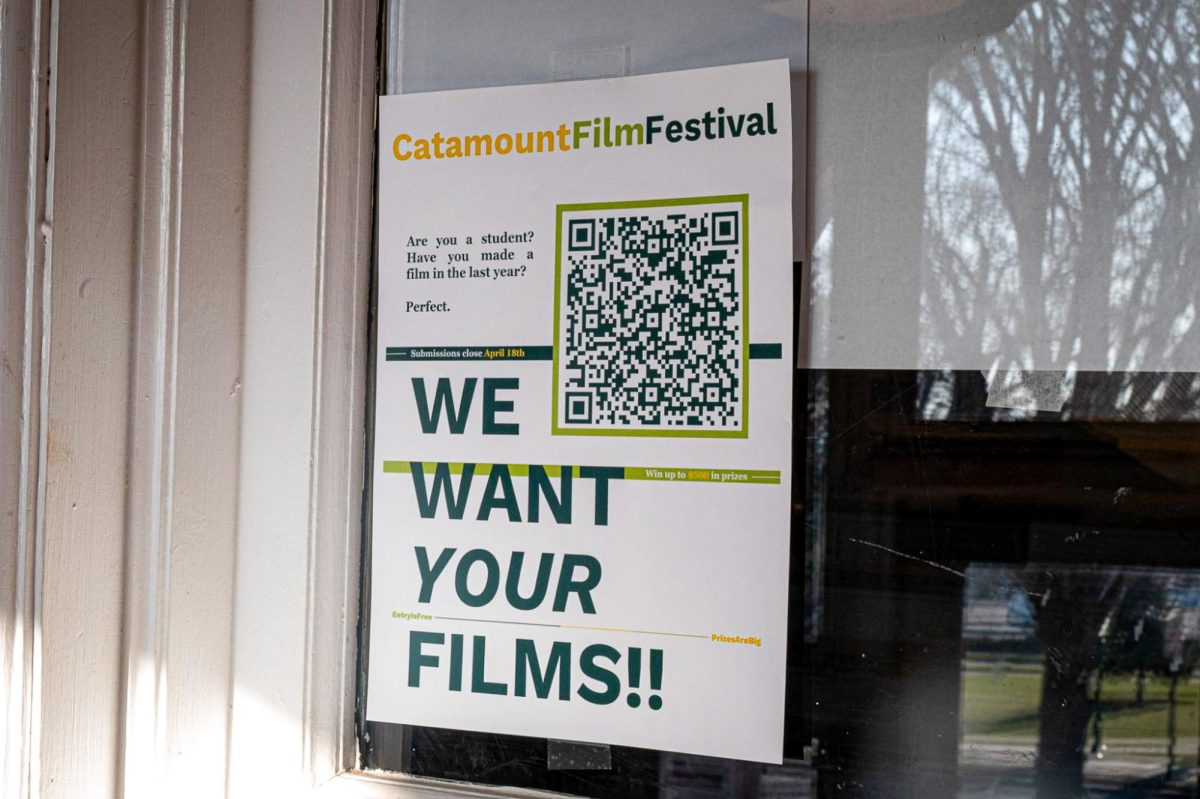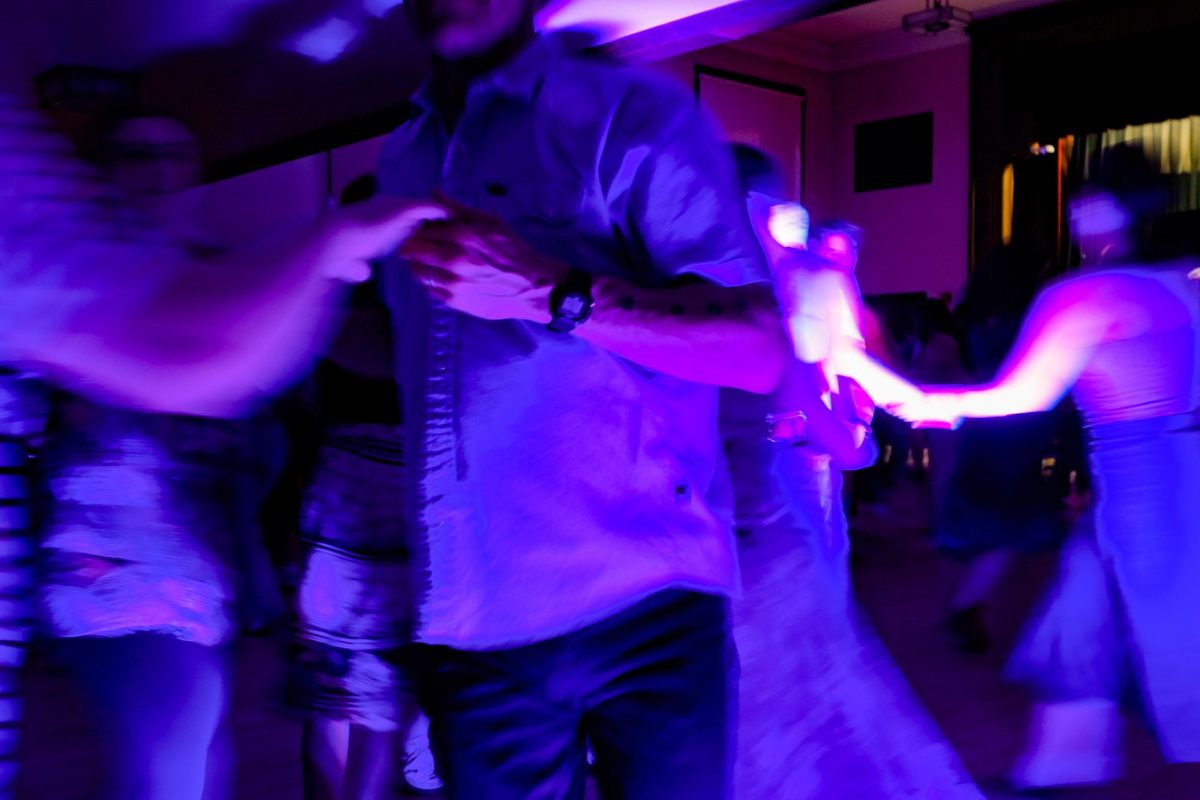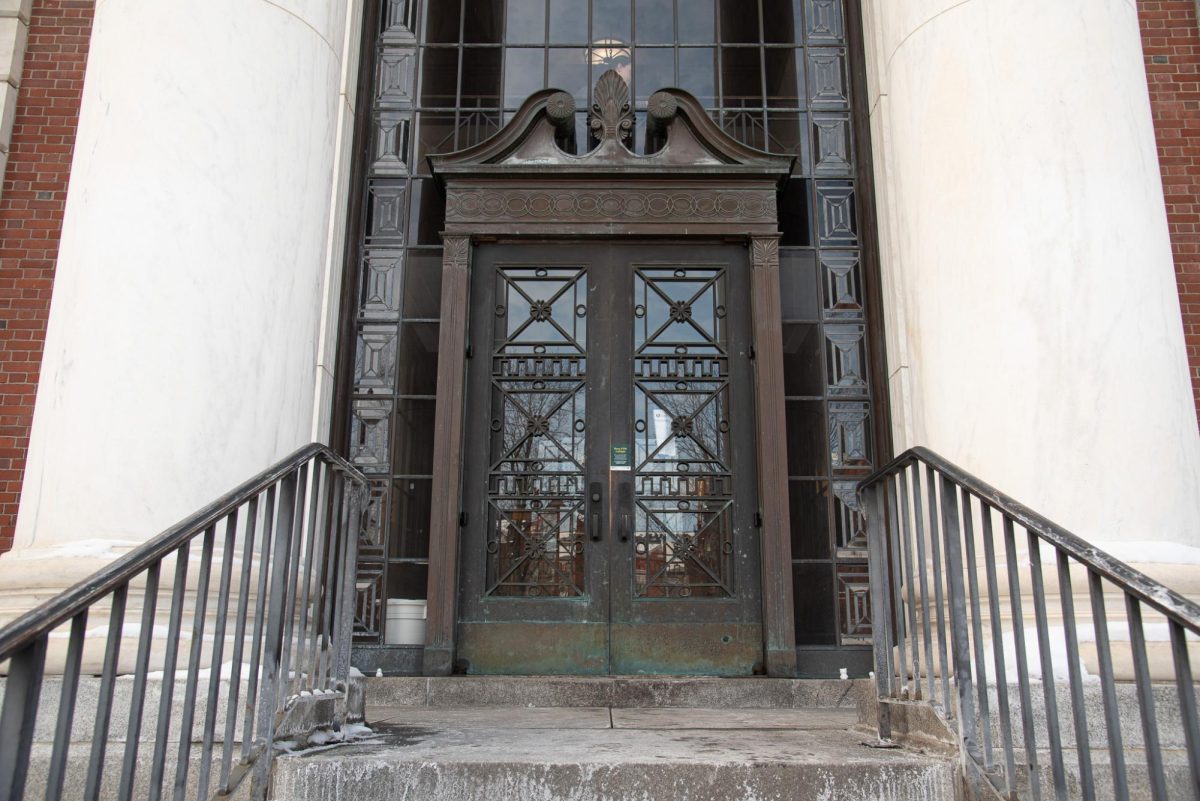Disabled students are trying to navigate their way through the patches of snow and ice that still cover sidewalks on campus.
“I kind of wish I had a Zamboni, so I could get around because of the ice,” said Amy Price, a student who is in a wheelchair.
Price said she tries to be as independent as possible through the winter weather but still needs help occasionally.
“Over break, I put stickers on my wheelchair to attract positive attention,” Price said. “If I get stuck in the snow, I can hope for a little manpower or a good Samaritan.”
Price said part of her independence comes from being smart about the weather. She judges what and when she can do through the Student Disability Transportation Services.
“For academic classes, I take the bus,” Price said. “If I’m going anywhere extracurricularly, I try to go on my own. I generally try to find things to do in the dorms like board games and movies. If I do go out, I just rough it.”
The university is doing all it can to accommodate disabled students, said Michael McDonald, director of Campus Environment and Operations.”We do focus on accessibility,” McDonald said. “A lot of it is curb cuts and ramps. We are concerned with routes taken by nonambulatory and otherwise disabled students, and we do prioritize those areas.”
Amber Wallenstein is a blind student who walks with the assistance of a seeing eye dog who was not trained in the snow.
“She was raised in Arizona and trained in California,” Wallenstein said. “She saw snow probably twice before I met her. She does a good job finding the sidewalks under the snow.”
She said snow doesn’t cause as much of a problem as ice. Getting traction on the sidewalks to get from place to place can be a problem, Wallenstein said.
“The dog can’t get traction; you can’t get traction, there’s nothing you can do,” Wallenstein said.
Grounds crews have been out daily plowing snow, putting down salt and chipping ice to help with the accessibility of campus.
“The salt isn’t working on the glazed ice,” McDonald said. “It doesn’t penetrate in a way that allows us to remove the ice. The salt pellets drill through the ice but don’t break it up. We’re down to chipping the ice, which is like chipping concrete when it gets this cold.”
Wallenstein said she periodically checks the sidewalks and parking lots around her building to determine the weather. When the sidewalks get too hazardous to travel, Wallenstein said she doesn’t go to class.
“Off-campus people don’t shovel their sidewalks,” Wallenstein said. “We end up walking in the street. It’s frustrating that you can’t walk on the sidewalks. I’m not going to risk my life for class. I love class, but my professors understand.”
Sometimes, because Wallenstein lives off campus, she relies on Portage Area Regional Transit Authority buses to get her on campus.Annie Jannarone, director of Student Disability Services, said PARTA isn’t always reliable to get students to class on time.
“We’re new working with PARTA,” Jannarone said. “They still have some bugs to be worked out. PARTA gives the students a window for pick-up, and they’ve been late a lot. I’m not putting blame on them — it could be our students overwhelming the system. I am confident it will get better.”
Price said the ice last week caused problems with her mobility. A bus driver stopped to help her across the ice to avoid an accident.
“One of the bus drivers saw me trying to go to the Bowman lecture hall, and he got out to push me,” Price said.
Jannarone said one way to alleviate bus timing issues is to allow one class period between classes to get from place to place if possible.
“I have to leave early from one class to make it to another on time,” Wallenstein said. “I let him (the professor) know at the beginning of the semester, and he understood.”
Wallenstein said people need to look out for everyone around them and keep alert during times of bad weather.
“People need to keep sidewalks clear and salted,” Wallenstein said. “Cars need to slow down and pay attention. People just need to use common sense.”











